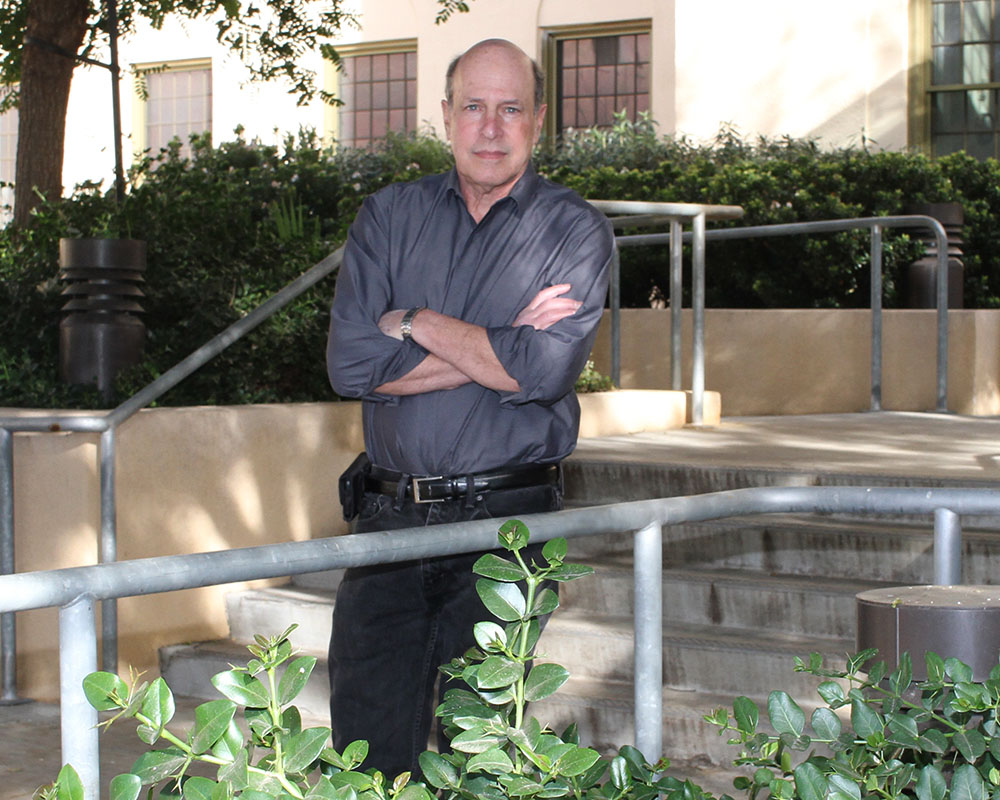VA has made real progress in reducing homelessness among Veterans in recent years. Since 2010, the number of homeless Veterans across the country has decreased by about 46 percent. VA recognizes, however, that while having a roof over one’s head is necessary, more is needed.
Enter THRIVe. That’s shorthand for a center that VA has created to help Veterans bloom within their communities – by finding work, engaging recreation, making friends and keeping in contact with family.
The acronym is adapted from the wording of the center’s mission: “Toward Homelessness Recovery and Integration for Veterans.” The full name is the Center on Enhancement of Community Integration for Homeless Veterans. Funded in September 2020 by VA Rehabilitation Research and Development, the center aims to study and address the gap between being housed and realizing the potential to participate more fully as a member of the community, says the center’s director, Dr. Michael F. Green. Participation in employment and personal activities is crucial for both mental and physical health, Green emphasizes.
After housing, what’s next?
The “Housing First” model that VA follows prioritizes housing without any requirements like being sober or participating in substance abuse treatment. Once housed, Veterans continue to receive services to help them achieve their health goals, whether in mental health or other areas.
In fact, VA’s work is far from done once a Veteran has shelter, says Dr. Jack Tsai, research director for the VA National Center on Homelessness Among Veterans and professor of public health at the University of Texas School of Public Health.
“If housing is first, the question naturally becomes ‘What’s next?’” says Tsai, who collaborates frequently with Green on research into mental health and homelessness.
Tsai’s answer: Because Veterans can feel isolated in a new environment, “We must understand the factors holding them back from integrating into their communities and address these factors to help Veterans thrive in their new neighborhood.”
More solutions needed for social isolation
The old-school focus was largely limited to “There’s a roof – these individuals are safe,” says Green. An expert on neuroscience and mental illness, he has studied community integration for people with psychotic disorders. But Green points out that this perspective is dated. He says it neglects the importance of helping Veterans who were homeless, and are now housed, integrate into the community. That involves finding work, participating in interpersonal relationships and activities, and functioning independently when it comes to basic needs such as meals and transportation.
“Problems such as social isolation don’t suddenly subside because someone has shelter,” Tsai emphasizes. He says that research has documented the problem with a lack of community integration, but that much more study is needed related to supportive solutions.
Homing in: Motivation is key
Many Veterans who have experienced homelessness have job skills and backgrounds that can prove important in employment and benefit their communities. And some have become “exceptionally successful – enjoying healthy relationships, becoming productive and well-to-do in their work, and focusing on how to give back,” says Tsai. On the other end of the spectrum, some newly housed Veterans become isolated and even end up returning to homelessness.
VA created THRIVe to examine the barriers that block some from participating in work and social opportunities, and to develop ways to overcome these hurdles. Center director Green is applying findings from his research in psychosis and homelessness, which he says are “very relevant” to recently housed Veterans regardless of whether they struggle with their mental health.
More Information
Click here to read the full story.
Click here to learn more about VA research.
Topics in this story
More Stories
Watch the Under Secretary for Health and a panel of experts discuss VA Health Connect tele-emergency care.
The 2024 National Veteran Suicide Prevention Annual Report provides the foundation for VA’s suicide prevention programs and initiatives.
Theranostics is a specialized field of nuclear medicine that uses a two-pronged approach to diagnose and treat cancer.







I was diagnosed with Prostate Cancer a few years back, was operated and had my prostate eliminated completely. I was in Vietnam for 8 months in 1968. I have been denied compensation because records show that the ship I was on did not enter the contaminated area with Agent Orange. How can I be sure I was not exposed?
All this while closing multiple VA facilities nationwide. These VA administrators are not altruistic. They are centering these “programs ” in specific areas to control the money. They are using Veterans as a tools.
This government cradle to grave program does not allow Vets to live a free life. It traps them into living in specific areas and creates welfare dependency syndrome.
Iam a vet been homeless for 10 years living in my car you done crap for me